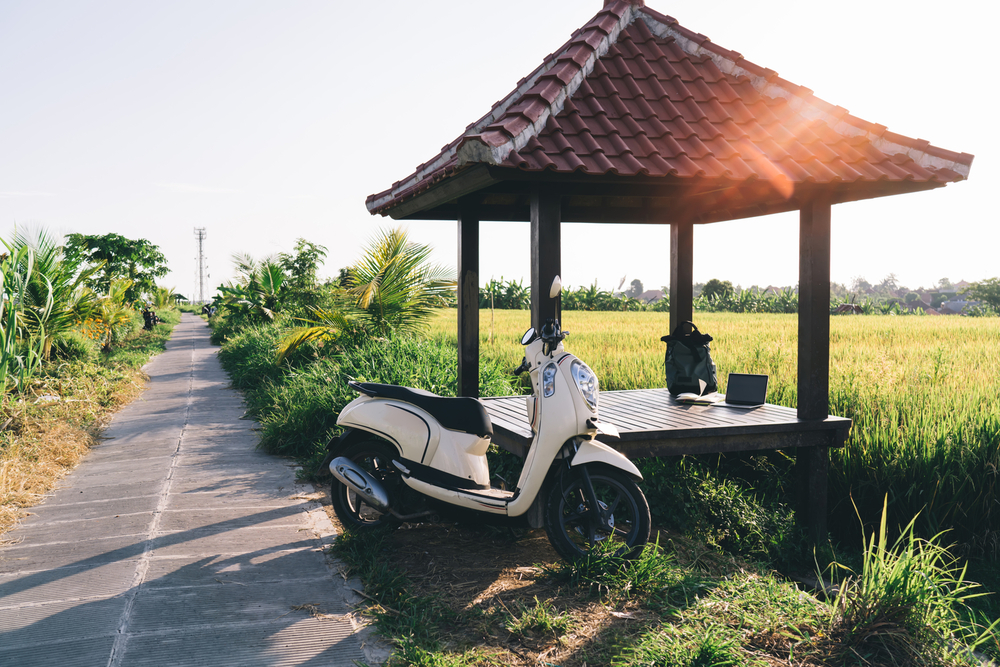Bali is more than a tropical escape, it’s a bucket-list destination. Think lush rice terraces, surf-ready beaches, yoga retreats, and a nightlife scene that balances cocktails with cultural charm. For many travelers, especially travelers planning their first big trip to Southeast Asia, Bali is both dream and question mark: Is it safe to go?
The truth: Bali is generally safe for travelers, but like any popular tourist destination, it comes with risks. From natural events like volcanic eruptions and seismic activities to petty theft in crowded areas, understanding what to expect helps you stay one step ahead.
And here’s the smart move, always travel with insurance. Even in paradise, accidents happen, and having coverage means peace of mind if you need medical help, lose your luggage, or face a trip disruption.
Index
Is Bali safe for tourists now?
Yes, Bali is safe for travelers overall. Millions visit every year without serious issues. That said, safety isn’t about luck, it’s about awareness. To enjoy your trip fully, you’ll want to know the real risks and how to handle them.
Precautions to take into account when traveling in Bali
- Stay updated on seismic activity. Bali has an active volcano, Mount Agung. Check for alerts and respect exclusion zones.
- Watch for scams. Overcharging taxis or fake tour operators can target tourists. Use official apps like Gojek, or licensed providers.
- Handle traffic wisely. Public transportation is limited, and scooters dominate. If you rent one, wear a helmet and drive cautiously.
- Protect your belongings. In crowded tourist areas like Kuta, Seminyak or Canggu, keep valuables secure to avoid pickpockets.
- Be mindful of local customs. Dress modestly at temples, and learn a few Indonesian phrases, it shows respect and keeps you welcome.
- Avoid unregulated alcohol. Counterfeit liquor has caused hospitalizations. Stick to reputable bars and restaurants.
- Stay safe in the water. Strong currents surprise even experienced swimmers. Swim at lifeguarded beaches only.
- Know the emergency contacts. Local authorities and your country’s embassy can help in urgent situations.

Are there any travel warnings for Bali?
At the moment, most governments consider Bali safe for tourism. However, it’s important to check your country’s official travel advisories before flying. Warnings are often linked to natural events like volcanic eruptions, seismic activities, or rare but notable attacks in Indonesia’s past.
The Indonesian authorities usually set up exclusion zones around active volcanoes when activity spikes. Travelers who ignore these can face both fines and real danger. Local authorities also issue alerts during severe weather or natural disasters, so stay informed.
In short: no widespread bans, but conditions can change quickly. Before your trip, review your government’s travel site and register your travel plans if possible. This ensures you’ll receive updates if new warnings are issued during your stay.
Is Bali cheap or expensive?
Bali can be as affordable or as pricey as you make it. Travelers on a budget can find $10 guesthouses, local food for just a few dollars, and cheap rides through ride-hailing apps. At the same time, luxury seekers can book $500 a night villas, dine at fine restaurants, and party in upscale clubs.
Public transportation is limited, which means taxis and scooters are the main ways to get around. While rides are usually cheap, costs can add up if you’re constantly moving between tourist areas.
Overall, Bali is still cheaper than most Western destinations, but it’s not the ultra-low-cost paradise it was a decade ago. Expect mid-range prices in popular tourist spots like Seminyak and Canggu, and better deals if you head inland toward Ubud or smaller villages.

What are the new rules for Bali in 2025?
Starting in 2025, Bali has introduced updated rules to manage tourism and protect its culture. Travelers now pay a small tourist tax on arrival, with funds going toward environmental protection and preserving local customs.
Indonesian authorities have also reinforced stricter guidelines around behavior in sacred sites. Visitors must dress appropriately in temples and avoid climbing or sitting on religious monuments. Disrespectful actions can result in fines or being banned from certain areas.
Another change affects long-term stays. Digital nomads and remote workers are required to use the correct visa, instead of overstaying tourist permits. Local authorities are enforcing this more actively, and penalties for violations are higher.
The goal of these new rules is simple: keep Bali welcoming while ensuring that tourism benefits both travelers and locals.
How to avoid “Bali belly”?
“Bali belly” is the nickname for traveler’s diarrhea, a common issue caused by bacteria in food or water. It’s unpleasant, but you can minimize the risk with a few habits.
- Drink bottled or filtered water. Tap water isn’t safe for drinking in Bali.
- Skip ice unless you’re sure. Only consume ice from restaurants that use filtered water.
- Choose busy food spots. High turnover usually means fresher food and safer hygiene.
- Wash your hands often. Hand sanitizer is your best friend when exploring tourist areas.
- Go easy on street food at first. Many travelers adjust fine, but start slow until your stomach adapts.
If you do get sick, hydration is key. Oral rehydration salts are widely available in local pharmacies. For severe cases, don’t hesitate to seek medical help, especially since travel insurance can cover treatment.
And if you’re covered with Heymondo, our Travel Assistance App connects you to a 24-hour online doctor for quick advice.
What vaccinations do you need for Bali?
Before heading to Bali, it’s smart to check in with your doctor or a travel clinic. The vaccines you require can depend on your health history and the length of your stay.
The CDC and WHO usually recommend being up-to-date on routine shots like measles, mumps, rubella, and tetanus. For Bali, many travelers are also advised to consider hepatitis A and typhoid, since both can be spread through contaminated food and water.
If you’re planning longer stays in rural areas, additional vaccines such as hepatitis B, Japanese encephalitis, or even rabies may be suggested. Rabies is rare in tourist areas, but stray dogs and monkeys are common, so a discussion with your doctor is worthwhile.
Keep in mind that Indonesian authorities don’t require proof of vaccination for entry, unless you’re arriving from a country with yellow fever. Still, being prepared helps you stay safe and healthy during your trip.

Why travel insurance is important when traveling to Bali
Traveling abroad is exciting, but it also comes with risks you can’t always control. From unexpected illnesses to lost luggage, even the most prepared traveler can run into trouble. That’s why having travel insurance is essential when heading to Bali.
With Heymondo travel insurance, you get coverage that makes a real difference. Medical assistance is available 24/7 through the Heymondo App, which connects you directly to doctors online or by phone whenever you need help. Coverage includes up to $10,000,000 USD in medical expenses, giving you peace of mind in case of accidents, sudden illness, or emergencies linked to natural disasters like volcanic eruptions or earthquakes.
But it’s not only about health. Travel insurance also protects you if your luggage goes missing, gets delayed, or is stolen in crowded tourist areas. And if unexpected events force you to cut your trip short, coverage can help reduce the financial hit.In short, travel insurance means freedom. You can focus on enjoying Bali’s beaches, temples, and culture, knowing that you’re protected if something goes wrong. Don’t leave your adventure to chance.
Featured stories













